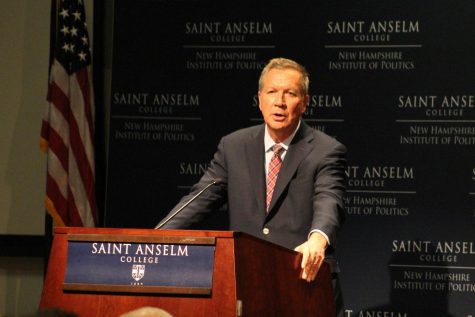Editorial
Trump wants to change libel laws and we should all be concerned
May 4, 2017
The Trump administration furthered its war on the news media this past Sunday when Reince Priebus, White House Chief of Staff, told Jonathan Karl on ABC’s This Week that they are “looking into” changing the libel laws.
For those who are unfamiliar with libel, Wex legal dictionary defines it as “a method of defamation expressed by print, writing, pictures, signs, effigies, or any communication embodied in physical form that is injurious to a person’s reputation, exposes a person to public hatred, contempt or ridicule, or injures a person in his/her business or profession.”
These laws were originally established to ensure that information reported by the press does not contain intentional falsehoods that are meant to ruin an individual’s reputation.
The law is already pretty clear-cut. If an article is produced that contains intentionally inaccurate and malicious information against an individual, then the writer and the organization who produced the work can be taken to court for damages.
The standards for truth and the presence of malice differ somewhat whether the victim is a public official, or a figure in the public eye or an ordinary citizen. However libel laws in all states expect the news media to be accurate, truthful and careful.
How exactly would President Trump change these laws, and why would he want to? The second part of that question is easy to answer. Over the first 100 plus days of his presidency, Donald Trump has made innumerable outlandish and baseless statements, and the media thus far has called him out for it.
One of Trump’s claims that resurfaced within the last few days was that President Obama ordered a wiretapping on Trump Tower during the election.
Trump has yet to provide any credible evidence of a wiretapping, and when CBS News’ John Dickerson asked him if he stands by this claim, President Trump said he doesn’t “stand by anything” and that Obama was a “sick man.”
What we can takeaway from this interview is that not only does Trump make baseless statements, but he seemed to heavily imply that he himself does not believe the things he says.
As to how Trump will change libel, most experts don’t have an answer. The law is already clear that it is illegal for members of the press to publish baseless and damaging claims, as it should be. Journalists have an obligation to the public to report the truth.
Is Trump’s end game to make it illegal to disagree with politicians and government officials? Doing so would be a clear violation of the First Amendment.
The press is an essential part of any properly functioning democracy, and free speech in general is the most essential of all our civil liberties.
That’s why it was the First Amendment proposed by the Founding Fathers. If President Trump’s first 100 days in office has taught us anything, it is that we need a free and responsible press now more than ever.










